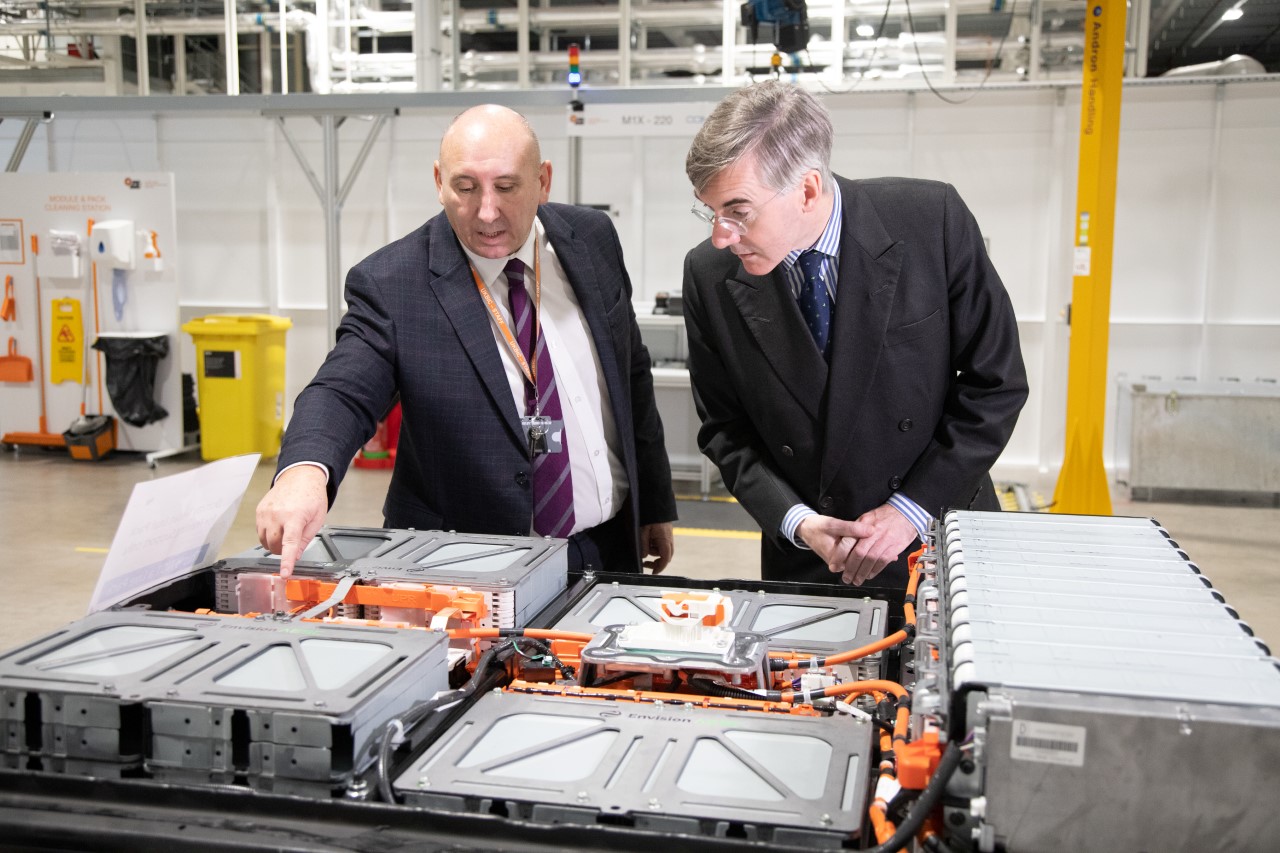Boost for battery research and development
21 October 2022 The Advanced Propulsion Centre (APC) has welcomed the latest injection of government support into the electrified supply chain. £211 million of funding confirmed for battery research through the Faraday Battery Challenge, delivered by strategic partners of the APC, will help to continue world-leading innovation in zero-emission technology for the automotive sector and beyond.
Speaking at the UK Battery Industrialisation Centre (UKBIC) after the announcement was made by Secretary of State Jacob Rees-Mogg, APC Chief Executive Ian Constance said:
“This funding represents a boost to the vibrant UK battery ecosystem, which is going from strength to strength. It’s vital that even in times of change, we continue with investment in research and development, now more than ever as the sector moves towards decarbonisation at pace. Not only are we now scaling and building an industrial supply chain through mechanisms like the Automotive Transformation Fund, but we have strength and depth in the core electrification systems through organisations like Driving the Electric Revolution, Innovate UK, the UK Battery Industrialisation Centre, Faraday Institution, and the Faraday Battery Challenge as announced by the Secretary of State today.”
APC’s own projections show that UK automotive domestic battery demand is now predicted to be 98GWh by 2030. This is based on a major switch to battery electric vehicles, with around 1.2 million domestically-produced cars and vans – and battery electric being the predominant propulsion mode made in UK assembly plants by a significant margin.
Batteries remain the single biggest cost element in the drive to electrification, but to get the cost down to affordable levels the sector must innovate across the whole spectrum; improving efficiency, reducing vehicle weight, and boosting fast-charging with more and better infrastructure. The funding announced today will help to achieve that.
The APC’s latest report on batteries finds that the UK is in a strong position to lead future battery cell innovation for the automotive sector. It sets out eight promising cell innovations are close to market, offering significant global opportunity.
Sign up to
our newsletter
our newsletter
Sign up to receive our newsletter if you’re interested in hearing about automotive industry news, events, project funding opportunities, green job vacancies and success stories.
